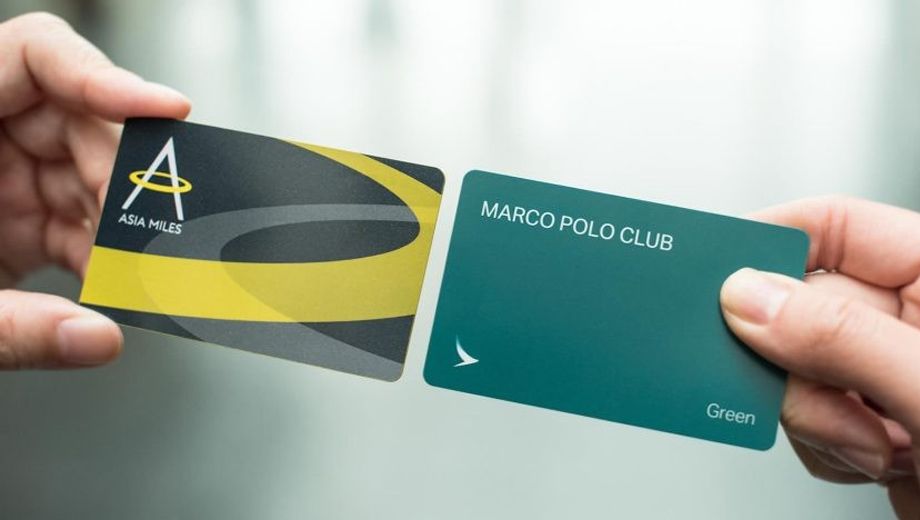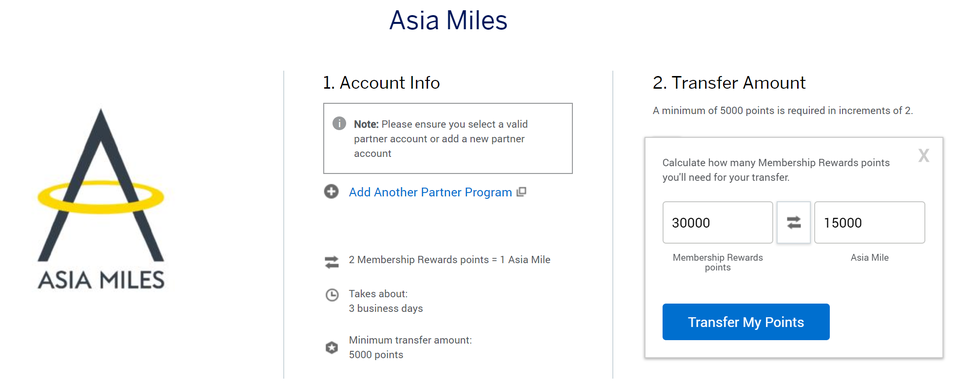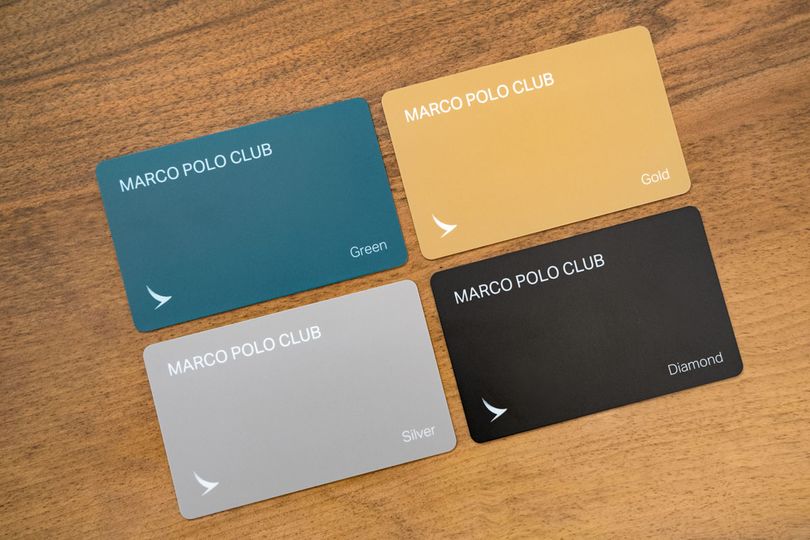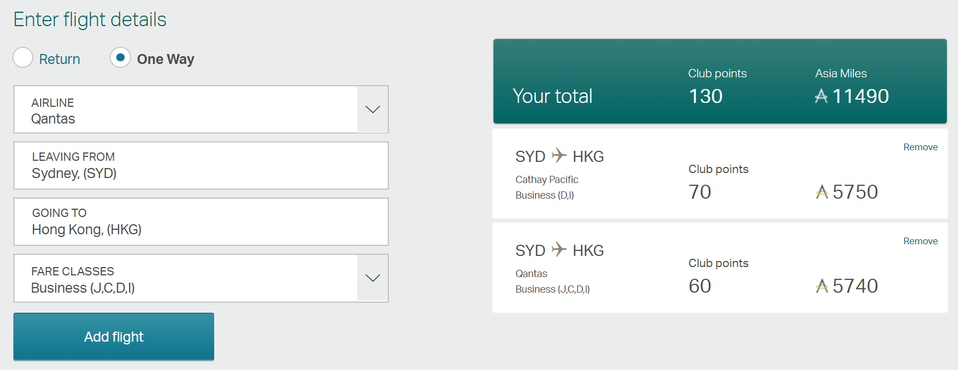Cathay Pacific Marco Polo Club vs Asia Miles: what's the difference?

This article is part of our ongoing Business Travel 101 series for newcomers to the world of business travel.
If you’ve recently started flying with Cathay Pacific, chances are you’ve come across its two affiliated programs – Asia Miles and the Marco Polo Club.
Not sure how they all work with each other?
Here’s the short answer: Asia Miles is a rewards program for redeeming your accumulated miles, while Marco Polo Club is a loyalty program for building up Club Points and gaining elite status.
You can earn Asia Miles and Club Points from the same flight if you hold membership in both programs.
Asia Miles: explained
Whenever you fly on Cathay Pacific, Cathay Dragon, or other Oneworld partners like Qantas, you can elect to earn Asia Miles on your fare by attaching your member number to the booking. It’s free to sign up for an Asia Miles account.
These miles can then be redeemed for reward seats on the aforementioned airlines.
For reference, a Cathay Pacific business class reward seat from Sydney to Hong Kong comes in at 45,000 Asia Miles one-way, plus associated taxes and surcharges.
Here’s a summary of how many Asia Miles you’ll need on other one-way routes.
Apart from earning in the air, you can also convert credit card reward points into Asia Miles.
Partners include American Express Membership Rewards, ANZ Rewards and Westpac Altitude.
Marco Polo Club: explained
The Marco Polo Club is for frequent flyers who would like to build up elite status, granting perks when flying with Cathay Pacific and other Oneworld airline partners.
There’s a yearly fee of US$100 (~A$145) to start off at the Green tier, but earning just 20 Club Points annually will waive that charge for each successive year.
You’ll move up the ranks as you accumulate Club Points. Each time you reach a new status level, your existing Club Points balance is wiped and you start again for the next level.
Silver status is yours after 300 Club Points, giving access to business class lounges before Cathay Pacific and Cathay Dragon flights – already a handy perk.
Gold status is earned with a fresh 600 Club Points. Equivalent to Oneworld Sapphire, this grants business class lounge access when flying any Oneworld airline, even in economy. Within Australia, that unlocks the Qantas Club before domestic trips with the Flying Kangaroo.
Finally, a Diamond card is awarded after earning a further 1,200 Club Points from scratch, along with coveted Oneworld Emerald status. You’ll always be welcome to first class lounges when flying, including The Wing and The Pier in Hong Kong.
A Sydney to Hong Kong one-way flight in business class will earn at least 70 Club Points when flying Cathay Pacific, or a flat 60 Club Points with Qantas.
The Club Points Calculator will show you how many Asia Miles and Club Points you can earn on your flights. Simply enter in your airline, routes and travel class.
For more information on Club Points and status, read our detailed guide to Cathay Pacific's Marco Polo Club.







Qantas - Qantas Frequent Flyer
18 Feb 2015
Total posts 124
Hey Brandon, thanks for this however it doesn’t really explain a lot... why do they have 2 programs? Is it basically like having one program for status credits and one for points (with reference to Qantas) and so they have just split them for some strange reason? And is this because CX sold their FF program?
11 Mar 2012
Total posts 315
Marco Polo members can also utilise Asia Miles to purchase lounge access passes that can be given to family and friends.
Qantas - Qantas Frequent Flyer
20 Aug 2012
Total posts 124
To clarify for everyone’s benefit, which Brandon explained to some extent, to reach Marco Polo Diamond status when you first join Cathay Pacific’s Marco Polo (MC) program you will need to accumulate a total of 2100 Club Points.
27 May 2017
Total posts 21
Also silver status is only to cathay pacific lounges with no guests
Hi Guest, join in the discussion on Cathay Pacific Marco Polo Club vs Asia Miles: what's the difference?